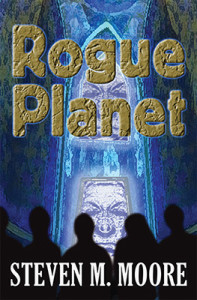Best sci-fi short fiction…
Let’s never forget the lives lost in the 9/11 attacks on the WTC. Terrorism came to America in a disastrous way, killing nearly 3000 innocent victims, along with first responders–the latter are still dying. Terrorism is evil in any shape or form, no matter who the perpetrators are! Let’s stamp this blight on innocent humanity.
***
[Note: This article forms a trilogy with my article about best sci-fi novels and best mysteries and thrillers.]
Sci-fi novels tend to be long…or they become trilogies or series. Some of this length is due to world-building, required narrative to establish exotic and strange settings. It’s also due to the “saga” aspect, because a novel or series can cover thousands of years of ET and human development. (I’ve written a few—see the ad below.)
Sci-fi short fiction is different. Both world-building and character development must be greatly reduced—plot dominates and there are fewer characters. Writing short fiction is a great way, though, for an author to become a minimalist writer, and sci-fi writing is no exception. Minimalism even serves writers well in their novels—you write just enough description to let readers form their own images, thus allowing them to participate in the creative process and identify more with the story.
That said, here is a list of what I consider the best sci-fi short fiction. The stories are notable classics for many reasons—originality, twists, eeriness, and so forth—and they also have influenced my own sci-fi writing. Your list might be different, and that’s okay. The stories are listed in alphabetical order for author then title (discounting “the” and “a(n)”—years in parentheses indicate Hugo awards):
Isaac Asimov, “The Bicentennial Man”
Isaac Asimov, “Nightfall”
Arthur C. Clarke, “The Nine Billion Names of God” (1954)
Arthur C. Clarke, “The Star” (1955)
Phillip K. Dick, “Adjustment Team”
Phillip K. Dick, “Do Androids Dream of Electric Sheep?”
Phillip K. Dick, “Minority Report”
Phillip K. Dick, “We Can Remember It for You Wholesale”
Charles Louis Fontenay, “The Silk and the Song”
William Gibson, “Johnny Mnemonic”
Harlan Ellison, “’Repent, Harlequin!’ Said the Ticktock Man” (1966)
Daniel Keyes, “Flowers for Algernon” (1960)
Damon Knight, “To Serve Man”
C. M. Kornbluth, “The Marching Morons”
Geoffrey A. Landis, “Falling Onto Mars” (2003)
Larry Niven, “Inconstant Man” (1972)*
Larry Niven, “The Warriors”
Frederik Pohl, “Fermi and Frost” (1986)
Clifford D. Simak, “Grotto of the Dancing Deer” (1981)
*This recent addition was brought to my attention by fellow Black Opal Books author and friend Stanley Brown (author of Veiled Memories and Legacy). Many sci-fi stories are hard sci-fi in the sense that they contain lots of current science and technology and their extrapolations, often far into the future. This Niven story didn’t influence me like other hard sci-fi stories—I just read it, thanks to Stan! It’s a good example, though, of how to weave hard science into a short story. (Surprisingly, Niven doesn’t have an excessive background in science; he was trained as a mathematician.) Hoyle’s The Black Cloud (a novel) has probably influenced me most in that sense. Niven’s other entry here initiated the many-anthology multi-author enterprise of wonderful sci-fi short fictin describing the Man-Kzin wars.
Probably the best story twist here is found in Knight’s “To Serve Man” (He probably also wrote the best how-to book for writing short fiction, Creating Short Fiction.) The best mini-saga can be found in Fontenay’s story. But all these stories offer great examples on how to create short fiction, especially in sci-fi. Young writers would do well to emulate them.
Today short fiction is an endangered species in literature. Anthologies and collections don’t sell very well, and there are few ‘zines left where authors can publish their stories (the ones left are selective, or should we say old boys’ clubs of exclusivity?)—they don’t pay well either. That’s sad…and interesting in an age when people could read a short story with their smart phone while riding to work on a bus or train.
All that doesn’t mean that authors should stop writing short fiction. It can be used to introduce readers to our writing. That’s why A.B. Carolan and I give our short fiction away. (An exception is Pasodobles in a Quantum Stringscape. Volume One is sold on Amazon only. I give away Volume Two—see the list on the “Free Stuff & Contests” web page.) (I start writing a story, not knowing whether it will become a short, novella, or novel. Those that end up short fiction are maybe my loss and possibly your gain, because they’re free.)
***
Comments are always welcome.

Rogue Planet. Extends The Chaos Chronicles Trilogy Collection to a planet ruled by an oppressive theocracy. The son of a deposed king must step forward and save his world. Game-of-Thrones action in a hard sci-fi setting…no dragons here, but plot and characters that will keep you reading. Available in ebook and print format at Amazon and ebook format at Smashwords and all the latter’s affiliated retailers (iBooks, B&N, Kobo, etc.).
Around the world and to the stars! In libris libertas!
